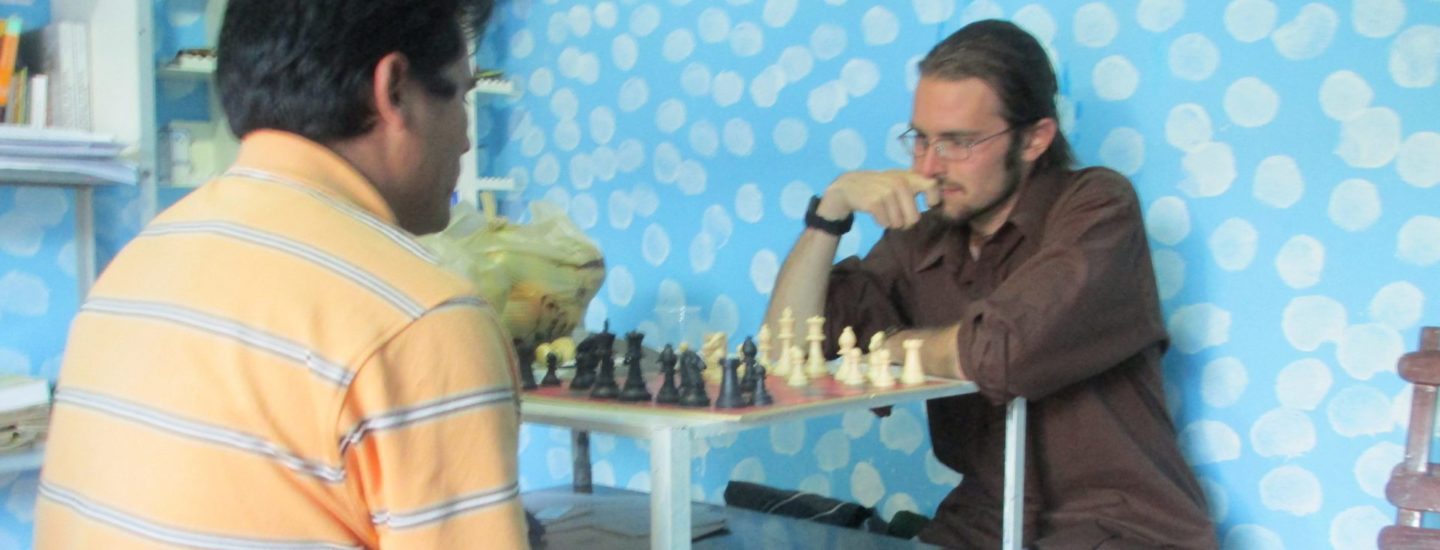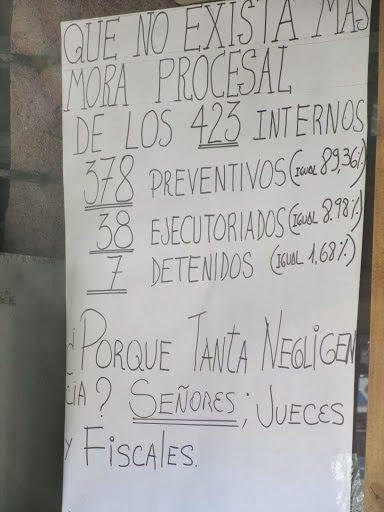Visiting Christ the Prisoner: “Chess”

Editor’s Note: This is Part II in a series called “Visiting Christ the Prisoner: A Look into Prison Ministry in Bolivia”. Read Part I and Part III.
In this post, Jeff shares with us a story of his time in El Centro Productivo de San Antonio. Home to 500 men along with their wives and children, San Antonio is one of the six prisons that Jeff regularly visits as part of his ministry in Cochabamba, Bolivia.
Each of the six prisons is unique, but in each of them inmates govern themselves with an elected system of delegates who oversee various parts of the prison society. The legal delegate, for example, serves as a legal aid, and is responsible for the majority of legal documents that the delegates send to outside institutions.
 |
| “Christ of Maryknoll” by Br. Robert Lentz, OFM |
One of the artisans in San Antonio has begun making chess sets, which are now one of the many products that I have available for sale every Wednesday in La Cancha. It was a surprise the first time I opened the box of products to see a chess set, since very few people here play ajedrez (chess). The work delegate, however, happens to be one of the only people I’ve met here who does actually play.
It has been an interesting experience, playing chess in a prison, since many of the inmates are currently involved in a more complicated chess match with the lawyers in their own individual legal processes. Each case is an ever-evolving puzzle that very slowly takes shape… but the wait can be dreadfully long.
For starters, over 85% of those incarcerated in Bolivia are only being detained. They are there as preventivos; they have not been sentenced, and can legally be held for up to three years before appearing before a judge. The majority don’t have to wait more than a year for their trial to start; however, there are inmates that are still waiting after five years.
 |
| Sign outside San Antonio Prison posted by the legal delegate (photo by Jeff Sved) |
I am not very involved on the legal side (law school in ENGLISH is a terrifying enough thought for me), but I often am delivering various letters and denuncias for the legal delegates to the governor’s office, public defender, and Regimen Penitenciaria, the government organization that coordinates the federal assistance in the prisons.
In general, the government provides 6.60 Bolivianos daily to help cover the cost of basic sustenance for inmates – food and rent. But what equates to less than a dollar a day covers a small breakfast or dinner; 16 Bs is viewed as a sufficient sum for basic nutrition.
The past few months, the governor’s office has neglected to pay the 6.60 Bs prediario, which is not a reward but a right. As part of the effort to receive the payments, the inmates have been closing the prison doors, refusing to allow outside visitors on a somewhat regular basis. There was also a petition signed by the delegate council in each prison, which at some point the government will have to respond to.
As with most things in the prison, the inmates have made their move and are left waiting. How long they are left to wait is yet to be seen.
Tagged in:
